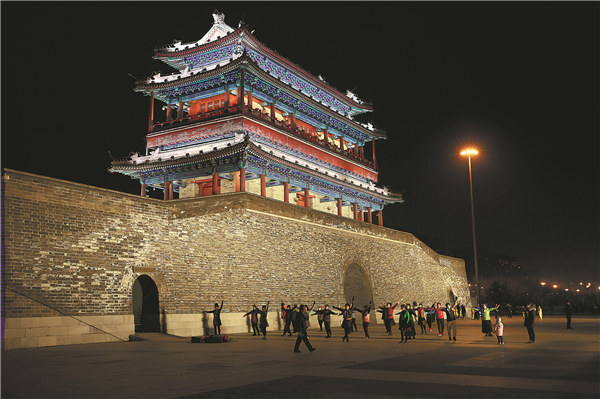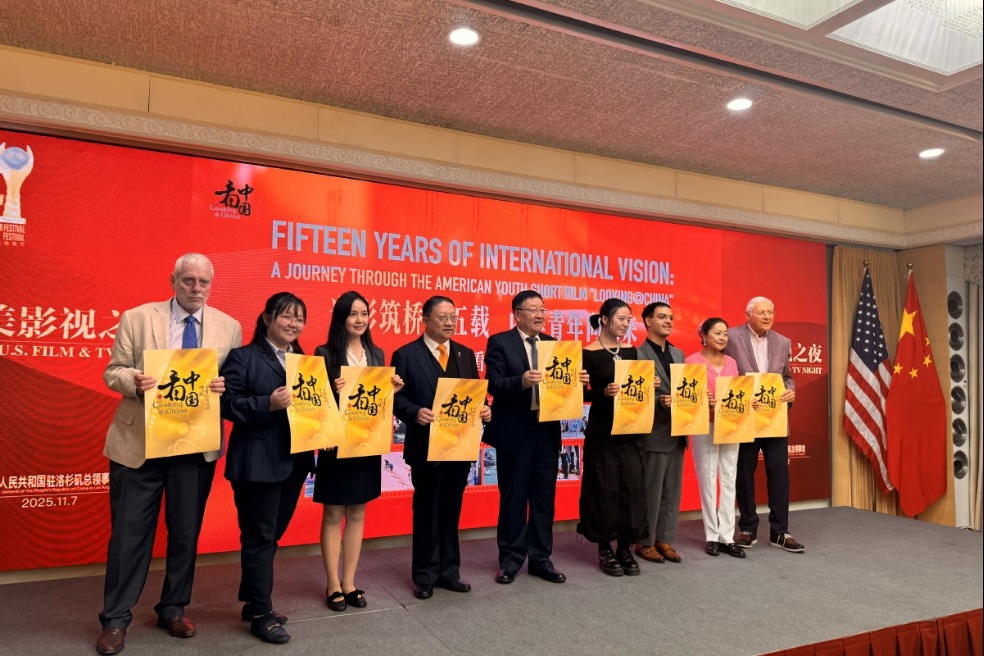Traditional culture of nation holds strategic significance
By Lau Siu-Kai | China Daily Global | Updated: 2023-11-07 09:12

Throughout the ages, the magnificent traditional culture of China has not only been respected and eulogized domestically, but has also enjoyed great appeal and influence internationally.
President Xi Jinping, who is also general secretary of the Communist Party of China Central Committee, has repeatedly explained, comprehensively and cogently, the importance of traditional Chinese culture to the nation. He has also deeply entrenched the essence of traditional Chinese culture in the country's domestic and foreign affairs strategies.
Carrying forward fine traditional Chinese culture has also become one of the core parts of Xi Jinping Thought on Culture.
In October, at a national meeting, Xi emphasized the need to "focus on continuing the Chinese cultural heritage and promote the creative transformation and innovative development of China's magnificent traditional culture", and to "protect and carry forward China's magnificent traditional culture".
On June 2, Xi delivered a speech at a symposium on cultural inheritance and development, saying that "only by comprehensively and deeply understanding the history of Chinese civilization can we more effectively promote the creative transformation and innovative development of China's magnificent traditional culture, more effectively promote the construction of socialist culture with Chinese characteristics and build the modern civilization of the Chinese nation".
There is no doubt that in the journey of promoting the construction of socialism with Chinese characteristics and realizing the great rejuvenation of the Chinese nation through Chinese-style modernization, carrying forward China's magnificent traditional culture is of great strategic significance.
First of all, it is closely related to the Sinicization of Marxism. The CPC has always emphasized the "first combination" of combining Marxism with China's reality. Xi underscored the importance of the "second combination" in his speech on June 2. "The 'second combination' makes Marxism Chinese, China's magnificent traditional culture becomes modern, and the new culture formed through the '(second) combination' becomes the cultural form of Chinese-style modernization.
"The road of socialism with Chinese characteristics is developed under the guidance of Marxism and emerges from the history of Chinese civilization of more than 5,000 years. The 'second combination' gives the path of socialism with Chinese characteristics a grand and far-reaching historical depth and has expanded the cultural foundation of the road of socialism with Chinese characteristics," Xi said.
In other words, the "second combination" is the inevitable and necessary development of the Sinicization of Marxism. Carrying forward China's magnificent traditional culture also allows Marxism to have more ideological vitality and practical effect in China.
Second, carrying forward China's traditional culture is a prerequisite and condition for promoting Chinese-style modernization, which is a unique modernization path that takes place in China and is pioneered by China. It has distinctive Chinese characteristics, and these characteristics are related to China's long history and culture to a considerable extent.
As Xi pointed out on June 2: "The continuity of Chinese civilization fundamentally determines that the Chinese nation must follow its own path. If we don't understand China from its long-standing historical continuity, it is impossible to understand ancient China, it is impossible to understand modern China, and it is impossible to understand future China."
Third, cultural confidence must be based on confidence in China's traditional culture. In Xi Jinping Thought on Culture, cultural self-confidence is the self-confidence in the advanced nature of socialist culture with Chinese characteristics. Adhering to cultural self-confidence is to inspire the Party and the people to have pride in China's magnificent traditional culture, and to form a consensus on and identification with the socialist core values in the whole society; and the socialist core values have many similarities with China's traditional culture.
Fourth, the concept of "a global community with a shared future "was reared by China's magnificent traditional culture. In September, the State Council Information Office released a white paper titled "A Global Community of Shared Future: China's Proposals and Actions", emphasizing that the concept of a global community with a shared future is rooted in China's profound historical and cultural heritage and carries forward China's traditional culture.
"Chinese magnificent traditional culture is the crystallization and essence of the wisdom of Chinese civilization. It provides useful enlightenment for people to understand and transform the world, contains important revelations for solving the problems faced by contemporary mankind, and contains rich genes of a global community with a shared future," the document says.
The white paper further emphasizes that the concept of "a global community with a shared future" is in harmony with the concepts of "harmony" and "harmony within diversity" in traditional Chinese culture, the Chinese nation's belief that "all nations together are one community", the Chinese nation's values of "universal benevolence, virtue and love", and values of "establishing oneself and helping others to establish themselves". Promoting the initiative of "a global community of a shared future" is also a promotion of China's traditional culture in a modern sense.
Fifth, carrying forward China's traditional culture also has important connotations for patriotic education. Promoting China's traditional culture is critical to cultivating and enhancing emotions for the Chinese nation and the great motherland, inheriting the national spirit, strengthening national consciousness, strengthening and uniting all patriotic forces, and making patriotism become the firm belief, spiritual strength and conscious action of all people.
Finally, promoting China's traditional culture will help boost the nation's global ideological and cultural appeal and influence. Strengthening the construction of China's international communication capabilities will continuously improve the country's cultural soft power and enhance the influence and communicative power of Chinese civilization.
The author is an emeritus professor of sociology at The Chinese University of Hong Kong and a consultant for the Chinese Association of Hong Kong&Macao Studies.
























